Irvine isn't the only community that thinks it's special and their house prices are immune to decline. Today we look at the small Orlando suburb, Celebration, Florida.
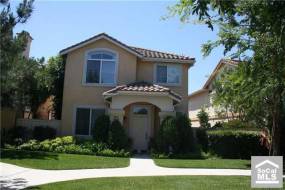
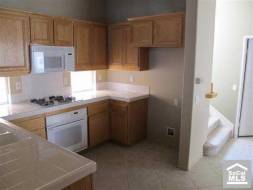
Irvine Home Address … 17 ALTEZZA Irvine, CA 92606
Resale Home Price …… $650,000

Under the sea we off the hook
We got no troubles
Life is the bubbles
Under the sea
Under the sea
Since life is sweet here
We got the beat here
Naturally
The Little Mermaid — Under the Sea
The last place I lived in Florida before moving to California was the Disney creation, Celebration, Florida. I had just sold my house in Leesburg, Florida, and my soon-to-be wife and I rented the apartment (now condo) above Max's Cafe downtown. It sold me on living in planned communities.
Celebration, Florida, is a small suburb of Orlando. The property was designed and developed by the Disney Company on their own land under principals set down by Walt Disney himself. Celebration was Walt Disney's utopian vision of the perfect American life.
After living there for a year, I felt they did a wonderful job of creating a small town in large and growing metropolis. Particularly if you lived at or near the downtown like we did, you had recreation, dining, and entertainment in an enjoyably walkable place.

(mine was in the building on left, middle of three with large white awnings over the corner restaurant)
Celebration has much in common with Irvine. Both communities were developed by a single landowner ensuring a consistent level of quality throughout. Both communities were marketed at a more affluent move-up buyer but smaller products at lower price points provided a nice mix of owners. Both communities also saw house prices inflated dramatically during the housing bubble.
So where is Celebration different from Irvine. Irvine must be special because Celebration's house prices have crashed while Irvine's have held up. It must be different here, right?
Pixie Dust Loses Magic as Foreclosures Slam Utopian Disney Town
By Kathleen M. Howley – Dec 13, 2010 9:00 PM PT
Walt Disney Co. built Celebration, Florida, as an idealized version of a circa-World War II small town, where litter-free streets are lined with white picket fences and front porches entice neighbors to sit after dinner.
Now, there’s trouble in the 16-year-old paradise set within earshot of the nightly fireworks at Walt Disney World Resort.
Celebration’s foreclosure rate is about double the state’s pace as homeowners who paid a premium for a vision of utopia fall behind on their mortgages. Earlier this month, a resident on the verge of losing his house shot himself after a 14-hour standoff with police. Three days before that, the town had its first murder when a man was bludgeoned with an ax.
Celebration had everything going for it making even the most insane prices seem like a logical recognition of value by the market. There was no reason to believe house prices would decline in Celebration except for the fact that prices were way too high.
“A lot of people bought homes in Celebration thinking Tinker Bell had sprinkled the town with pixie dust,” said Michael Olenick, chief executive officer of mortgage-data firm Legalprise Inc., referring to the character in Disney’s “Peter Pan” movie whose magical dust allows people to fly as long as they think happy thoughts. “Reality is hitting hard.”
The foreclosure rate in Celebration since the beginning of 2009, based on notices of so-called lis pendens that initiate a case, is one for every 20 residents, compared with one per 48 people in Florida as a whole, according to Legalprise, in West Palm Beach. Celebration home values have dropped as much as 60 percent from the 2006 peak, while statewide values are down 51 percent, data from Seattle-based research firm Zillow Inc. show.
That is astonishing to me that a premium community could fall so hard. Celebration is great. Desirability is not causing prices to crater there.
‘Fantasyland’ Premium
Celebration foreclosures are happening at a faster pace in part because property owners in financial trouble are walking away from vacation homes in the town, where real estate sells for about 30 percent more than surrounding communities, said Olenick. Before the recession, people were willing to pay more for living in a Disney “fantasyland,” he said.
“The harsh reality is, bad things happen in Celebration too, both in real estate and in life,” Olenick said.
It's a good thing those bad things don't happen here.


… Disney started building Celebration in 1994, and the first residents arrived in 1996. Located on the southern border of Disney World, 25 miles south of Orlando, it was designed by Robert A.M. Stern, dean of the Yale University School of Architecture, and Jaquelin Robertson, a founding partner at Cooper, Robertson & Partners in New York. The style of the development is called New Urbanism, also known as neotraditionalism, emulating 1950s mixed-use neighborhoods where it was easier to walk than to drive.
Kilwin’s, Woof Gang
In the center of town, bordering a lake constructed by Disney, stores include Kilwin’s, a seller of ice cream and fudge, and the Woof Gang Bakery, where dog owners buy gourmet treats. At the Market Street Cafe, there’s an old-fashioned soda counter where diners can order the restaurant’s specials: meat loaf and chicken pot pie, followed by apple or pecan pie.
Lexin Capital, a New York-based private real estate investment firm, bought the 18-acre Celebration downtown from Disney in 2004. Mike Nunez, a spokesman for the company, didn’t return calls seeking comment. Disney still owns some commercial property in the town, according to Marilyn Waters, a spokeswoman for the Burbank, California-based company.
I find it interesting that Disney sold the downtown. It was not a great commercial center when I was there prior to the bubble, but the lack of foot traffic was likely due to the shortage of households in the early stages. Disney took a risk developing the commercial before the residential was there to support it.
Twice the Value
Living 12 minutes from Disney World’s Magic Kingdom, with a backdoor access road, comes at a price. Buying in the 10,000- person town requires paying what locals call the “Celebration Premium.” The median home value, including single-family properties and condominiums, was $250,800 in October, almost twice the $127,300 for the entire state, according to Zillow.
Sounds like Irvine and the "Irvine Premium," doesn't it?
Properties in Celebration are priced as high as $3.9 million for a six-bedroom, 8,000-square-foot (743 square-meter) mansion on a three-quarter-acre lot, according to Realtor.com. At $529,000, buyers could get a four-bedroom, 2,800-square-foot home with a wrap-around porch on about a sixth of an acre.
For condominiums, $90,000 will buy a two-bedroom, 1,000- square-foot unit, according to Realtor.com. At the top of the market, a five-bedroom, 3,400-square-foot, townhouse-style condo is priced at $675,000.
Four years ago, at the height of the real estate boom, the least expensive single-family house in the June to December period sold for $350,000, according to Kathleen Carlson, owner of Imagination Realty in the town’s center. In the same period this year, it was $210,000, she said.
The lowest condominium sale in the boom was $193,000, compared with a sale at $70,000 for the 2010 period, she said.
On a percentage basis, condos rose more and fell more than larger single-family detached properties. Of course, many of the mid to high end properties have not hit bottom yet either.
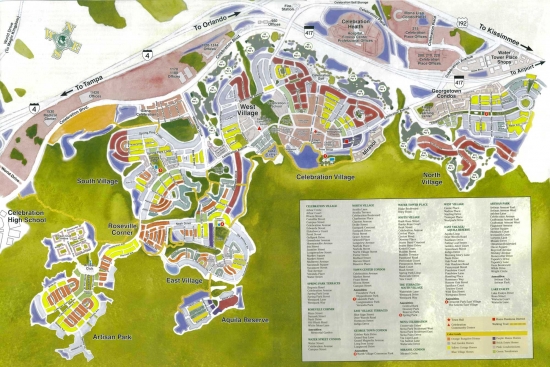

Town Maintenance
All owners pay about $860 a year for private trash pickup and recreational facilities, including parks, community pools and baseball fields. Condo owners pay an additional maintenance fee that varies depending on location.
The town’s Architectural Review Committee maintains strict control over the appearance of properties, dictating paint colors, regulating holiday decorations and overseeing the size of political signs that can only be posted in the 45 days leading up to an election.
Most residents see the rules as “protection,” said Carlson, who lives in a Celebration home with a wide front porch where she drinks coffee with neighbors on Sunday mornings.
“Most of us came here not because of Disney — we came because we wanted that type of control over our neighborhood,” Carlson said, “You don’t have to worry that your neighbor will suddenly start parking an old pickup on his front lawn.”
Isn't that Irvine? People don't come to Irvine to seek freedom to do whatever they want with their properties. People buy here because they know they aren't going to devalue their property, and they want neighbors that won't hurt values either. The HOAs get larger, take on more maintenance responsibilities, and stop homeowners from painting garish colors or parking cars up on blocks in the front yard.
Six Acceptable Styles
Like Carlson’s house, most properties have front porches that encourage neighborliness. There are six accepted historical architectural styles for homes: Victorian, Classical, Colonial Revival, Mediterranean, French, and Coastal.
While white picket fences outline most front yards, not everyone is allowed to have them. That would look too fake, said Laura Poe, a spokeswoman for the town. The architectural committee decides who can have the old-fashioned fences and who must have short, trimmed hedges.
The town shows its Disney heritage in annual seasonal shows, each with special effects originally designed by the entertainment company. In October, leaf-shaped confetti shoots out of lamp posts in the village center to simulate colorful falling foliage. During the month of December, the posts emit what locals call snoap — soap suds that look like snow.
Unlike in real life, the snow falls four times a night, on schedule, and dissipates without shoveling.
“Two of my grandchildren think we live inside Disney World, with Mickey Mouse,” said Celebration resident Sessoms, referring to a four-year-old and a five-year-old. “Except for the recent violence, I can understand why they would think that.”
Irvine is Celebration, minus the price crash. Will Irvine continue to escape the carnage? Perhaps we have less debt and fewer debtors here?
She borrowed and spent every penny she could get
The owner of today's featured property really became adept at raiding the housing ATM. She stopped paying about two years ago, but the property is only now making it to market. This one only hid in shadow inventory for about six months after the bank bought it. They probably couldn't find the right renter and decided to sell.
- This property was purchased at the bottom of the last housing bubble. She paid $241,000 on 9/12/1997. She used a $202,000 first mortgage and a $39,000 down payment. She didn't want to wait long to get back that down payment money.
- On 1/15/1998 she obtained two a stand-alone second mortgages for $25,000 and $16,000 respectively.
- On 8/12/1999 she refinanced with a $294,000 first mortgage. Less than a year into the house, and she managed to withdraw her down payment plus $53,000.
- On 2/21/2001 she obtained a stand-alone second for $75,000.
- On 10/10/2002 she refinanced the first mortgage for $374,000.
- On 7/3/2003 she refinanced again with a $454,500 first mortgage.
- On 8/29/2003 she refinanced with a $456,000 first mortgage.
- On 12/18/2003 she obtained a $100,000 HELOC.
- On 1/4/2005 she refinanced with a $600,000 first mortgage and a $150,000 stand-alone second.
- On 12/9/2005 she refinanced with a $680,000 first mortgage and a $170,000 stand-alone second.
-
Total property debt was $850,000.

- Total mortgage equity withdrawal was $648,000.
- She squatted for about 15 months.
Foreclosure Record
Recording Date: 10/02/2009
Document Type: Notice of Sale
Foreclosure Record
Recording Date: 05/04/2009
Document Type: Notice of Default
She quit paying in late 2008 or early 2009, probably when she saw the housing ATM was turned off for a while. The bank foreclosed on 5/10/2010 for $749,912. For the last 6 months, they have been "processing" this REO.


Irvine Home Address … 17 ALTEZZA Irvine, CA 92606 ![]()
Resale Home Price … $650,000
Home Purchase Price … $241,000
Home Purchase Date …. 9/12/1997
Net Gain (Loss) ………. $370,000
Percent Change ………. 153.5%
Annual Appreciation … 7.4%
Cost of Ownership
————————————————-
$650,000 ………. Asking Price
$130,000 ………. 20% Down Conventional
4.87% …………… Mortgage Interest Rate
$520,000 ………. 30-Year Mortgage
$132,604 ………. Income Requirement
$2,750 ………. Monthly Mortgage Payment
$563 ………. Property Tax
$167 ………. Special Taxes and Levies (Mello Roos)
$108 ………. Homeowners Insurance
$167 ………. Homeowners Association Fees
============================================.jpg)
$3,756 ………. Monthly Cash Outlays
-$468 ………. Tax Savings (% of Interest and Property Tax)
-$640 ………. Equity Hidden in Payment
$243 ………. Lost Income to Down Payment (net of taxes)
$81 ………. Maintenance and Replacement Reserves
============================================
$2,972 ………. Monthly Cost of Ownership
Cash Acquisition Demands
——————————————————————————
$6,500 ………. Furnishing and Move In @1%
$6,500 ………. Closing Costs @1%
$5,200 ………… Interest Points @1% of Loan
$130,000 ………. Down Payment
============================================
$148,200 ………. Total Cash Costs
$45,500 ………… Emergency Cash Reserves
============================================
$193,700 ………. Total Savings Needed
Property Details for 17 ALTEZZA Irvine, CA 92606
——————————————————————————
Beds: 3
Baths: 2 full 1 part baths
Home size: 2,056 sq ft
($316 / sq ft)
Lot Size: 2,550 sq ft
Year Built: 1996
Days on Market: 32
Listing Updated: 40525
MLS Number: S639477
Property Type: Single Family, Residential
Community: Westpark
Tract: Trov
——————————————————————————
According to the listing agent, this listing is a bank owned (foreclosed) property.
BACK ON THE MARKET!!! Don't miss out on this beautiful home located in the Westpark area features 3 bedrooms plus a bonus room, large master bedroom with walk in closet, upstairs laundry room, fireplace in living room, 2 car attached garage, and much more! .
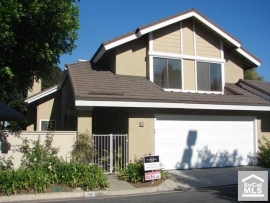
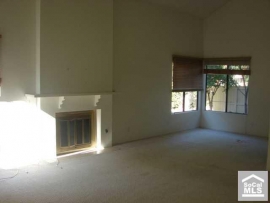

 That being the case, a prolonged period of stagnant home prices immobilizes the population. With no equity to pay the transaction costs of leaving, homeowners with less than 10% equity are effectively underwater.
That being the case, a prolonged period of stagnant home prices immobilizes the population. With no equity to pay the transaction costs of leaving, homeowners with less than 10% equity are effectively underwater.


.jpg)


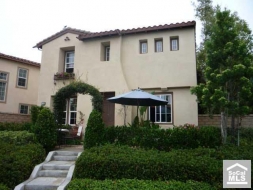
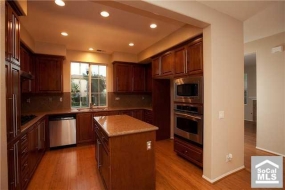

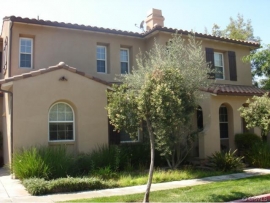
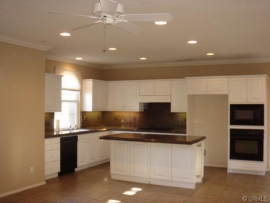






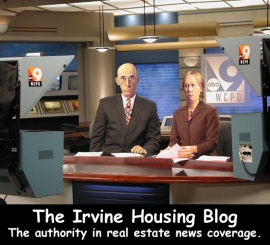

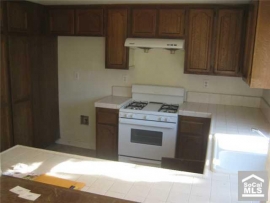






.jpg) .
.

.jpg)
 It's a good time to buy if you believe a cartel of lending interests that control the sale of millions of properties can hold price levels above what people can realistically afford and divest themselves of all their inventory. If you believe the banking cartel can do this, then we are near enough to the bottom that buying now doesn't hurt. On a nominal basis, it may not, but on an inflation-adjusted basis, it is not great planning to tie up money in an asset that treads water for 10 years while inflation ravages the buying power of the currency.
It's a good time to buy if you believe a cartel of lending interests that control the sale of millions of properties can hold price levels above what people can realistically afford and divest themselves of all their inventory. If you believe the banking cartel can do this, then we are near enough to the bottom that buying now doesn't hurt. On a nominal basis, it may not, but on an inflation-adjusted basis, it is not great planning to tie up money in an asset that treads water for 10 years while inflation ravages the buying power of the currency.